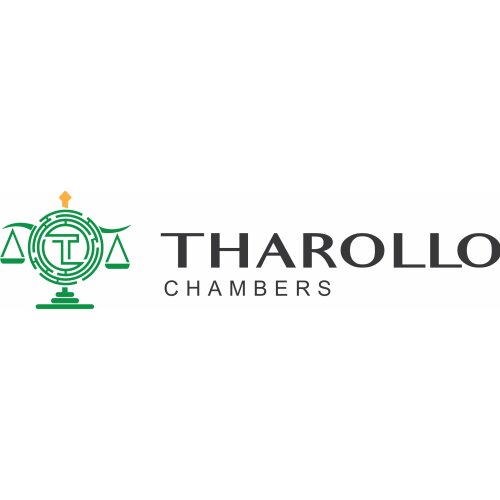Best General Litigation Lawyers in Lesotho
Share your needs with us, get contacted by law firms.
Free. Takes 2 min.
Or refine your search by selecting a city:
List of the best lawyers in Lesotho
About Litigation Law in Lesotho
Litigation in Lesotho involves the process of taking legal action through the country's judicial system to resolve disputes. The legal framework in Lesotho is a mixed system of civil, customary, and common law. The Court of Appeal is the highest court in Lesotho, followed by the High Court, which deals with both civil and criminal matters. Primary litigation issues include contract disputes, property claims, and personal injury cases. In Lesotho, litigation procedures and rules are governed by the Courts Act, 1978 and subsequent amendments.
Why You May Need a Lawyer
Various situations might necessitate the need for legal representation in litigation processes:
- Contractual Disputes: When facing issues such as breach of contract, an attorney can help navigate the legal process and protect your interests.
- Personal Injury Claims: If you've suffered an injury and are seeking compensation, legal help is crucial for properly presenting your case.
- Property Disputes: Issues regarding land ownership or tenancy can require a lawyer to resolve complex legal matters effectively.
- Business Litigation: Companies may need legal guidance to resolve disputes arising from business operations or shareholder disagreements.
- Family Matters: Divorce settlements and child custody cases can be complicated, requiring legal support to ensure a fair outcome.
Local Laws Overview
The legal landscape in Lesotho is distinctly characterized by a mix of laws influenced by customary practices and common law principles. Key aspects specifically relevant to litigation include:
- Court Procedures: Governed by the Rules of Court, which outline the procedure for filing cases and conducting legal proceedings.
- Right to Appeal: The legal framework provides individuals with the right to appeal decisions to a higher court under certain conditions.
- Limitation Periods: The Limitation Amendment Act dictates the time periods within which legal actions must be initiated.
- Access to Justice: Efforts are continually being made to improve access to justice, although some remote areas may still face challenges.
Frequently Asked Questions
1. What is litigation?
Litigation is the process of resolving disputes by taking legal action in a court of law.
2. How do I start a litigation process in Lesotho?
To start litigation, you must file a complaint or a summons with the competent court, initiating legal proceedings against the other party.
3. What are the courts of jurisdiction in Lesotho?
The courts include the Magistrates' Court for minor cases, the High Court for significant civil and criminal cases, and the Court of Appeal as the final appellate court.
4. Can I represent myself in court?
Yes, individuals can represent themselves, but it is advisable to have a lawyer due to the complexities of legal proceedings.
5. How long does litigation usually take in Lesotho?
The duration varies depending on the complexity of the case, court schedules, and procedural requirements but can last from months to several years.
6. What costs are involved in litigation?
Costs may include filing fees, attorney fees, and any additional expenses related to gathering evidence and expert testimonies.
7. What should I do if I'm served with legal papers?
You should seek legal counsel immediately to understand the implications and prepare an adequate response or defense.
8. How are judgments enforced in Lesotho?
Once a court delivers a judgment, enforcement mechanisms such as garnishment of wages or seizing assets can be employed to ensure compliance.
9. Is alternative dispute resolution available in Lesotho?
Yes, methods like mediation and arbitration are encouraged to resolve disputes outside of the traditional courtroom setting.
10. What is the importance of legal precedents in Lesotho?
Legal precedents from previous cases are critical as they guide current court interpretations and decision-making processes.
Additional Resources
The following resources are available for those seeking additional help or information:
- Lesotho Law Society: Offers a directory of certified legal practitioners.
- The Ministry of Law and Constitutional Affairs: Provides resources on the legal framework and access to legal texts.
- Lesotho Legal Information Institute (LesLII): Offers free access to legal information including case law and legislation.
- Office of the Ombudsman: Assists with grievances against administrative decisions by public authorities.
Next Steps
If you believe you require legal assistance in a litigation matter, consider the following steps:
- Consult a Lawyer: Seek professional legal advice to understand your rights and options.
- Gather Documentation: Collect all relevant documents and evidence that support your case.
- Understand the Costs: Discuss potential costs and payment arrangements with your lawyer.
- Explore Settlement Options: Consider alternative dispute resolution if it seems advantageous.
- File Timely Actions: Adhere to any legal deadlines to ensure your case proceeds smoothly.
Lawzana helps you find the best lawyers and law firms in Lesotho through a curated and pre-screened list of qualified legal professionals. Our platform offers rankings and detailed profiles of attorneys and law firms, allowing you to compare based on practice areas, including General Litigation, experience, and client feedback.
Each profile includes a description of the firm's areas of practice, client reviews, team members and partners, year of establishment, spoken languages, office locations, contact information, social media presence, and any published articles or resources. Most firms on our platform speak English and are experienced in both local and international legal matters.
Get a quote from top-rated law firms in Lesotho — quickly, securely, and without unnecessary hassle.
Disclaimer:
The information provided on this page is for general informational purposes only and does not constitute legal advice. While we strive to ensure the accuracy and relevance of the content, legal information may change over time, and interpretations of the law can vary. You should always consult with a qualified legal professional for advice specific to your situation.
We disclaim all liability for actions taken or not taken based on the content of this page. If you believe any information is incorrect or outdated, please contact us, and we will review and update it where appropriate.
Browse general litigation law firms by city in Lesotho
Refine your search by selecting a city.












